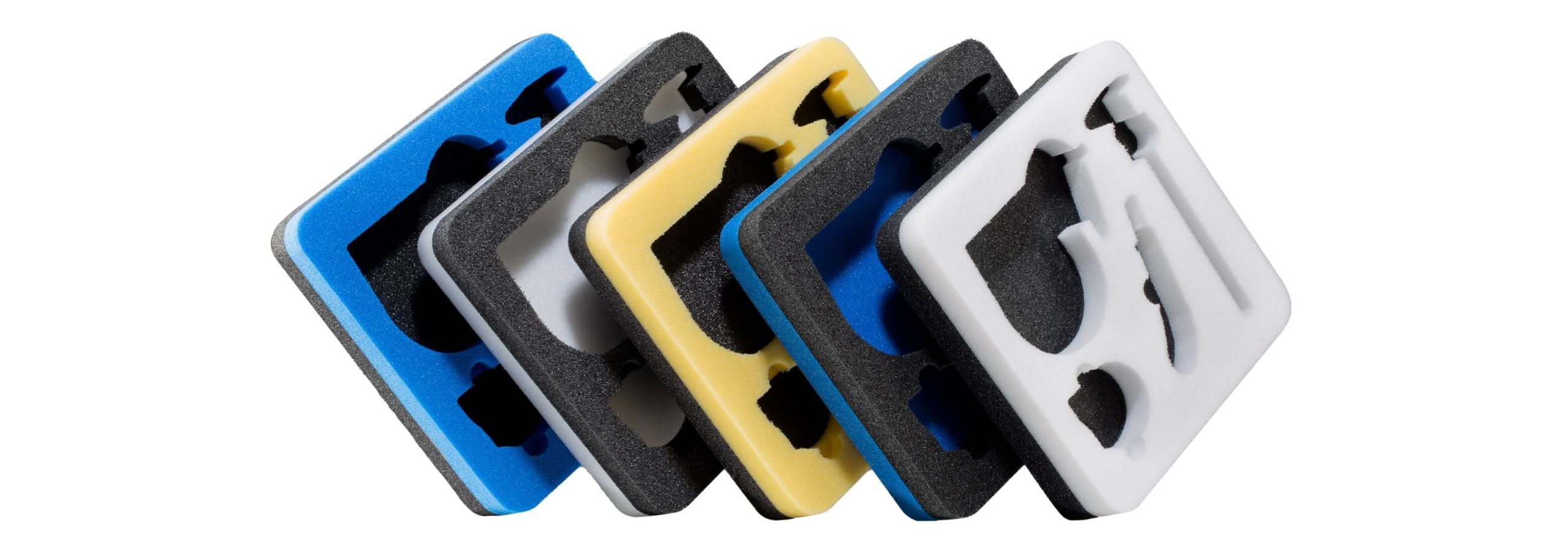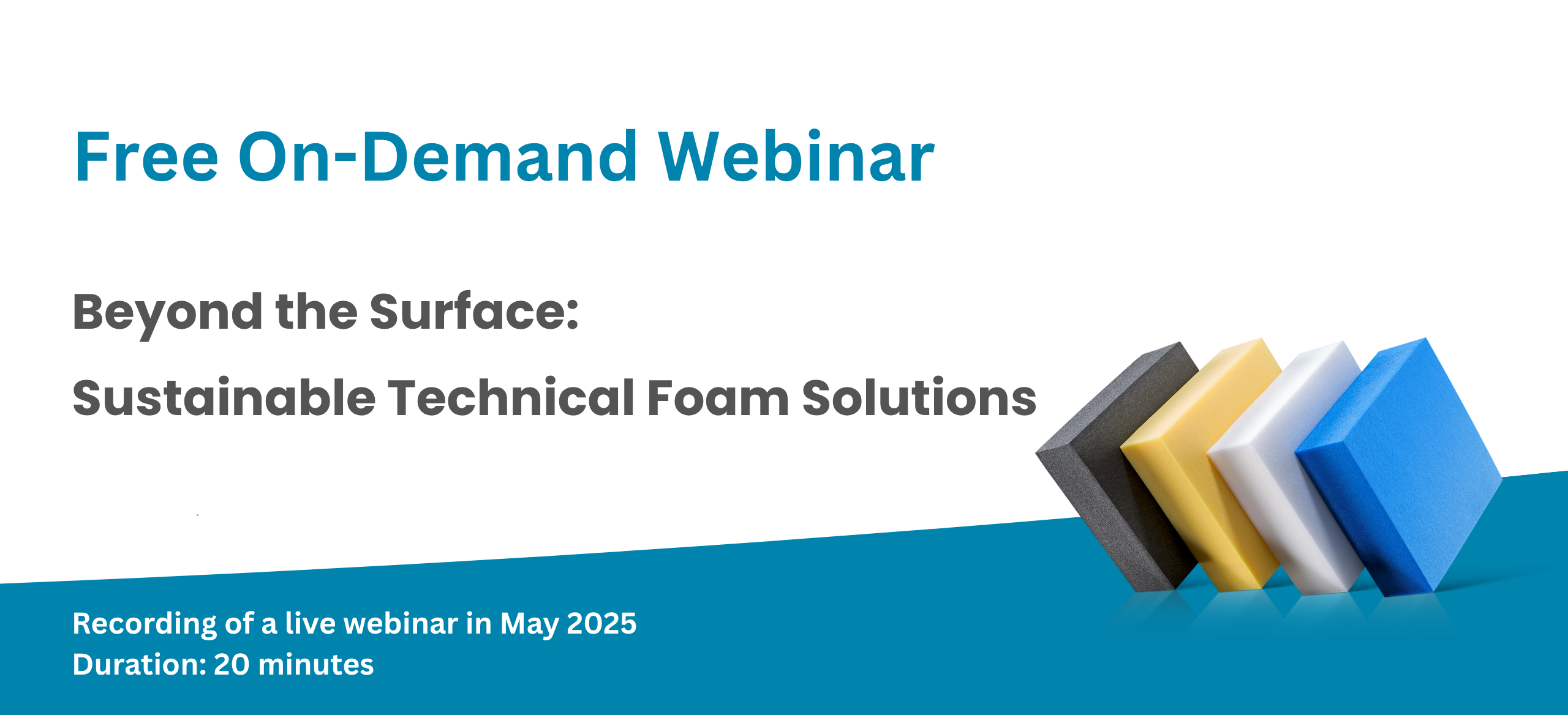
Thanks for joining us!
We’re glad you could be part of our webinar. To make it easy for you to revisit the content, we’ve gathered everything in one place: the full recording and an FAQ section.
📄 Curious? Watch the teaser first
▶️ Watch the Webinar
🎥Watch the Production Process Movie
FAQ
-
PCR (Post-Consumer Recycled): Material that has been used by consumers, discarded, and then collected for recycling. Examples include plastic bottles, packaging, or other products that have reached the end of their lifecycle with the consumer and are then recycled into new products.
PIR (Post-Industrial Recycled): Material that is recycled from industrial or manufacturing processes before it reaches the consumer. This includes scraps, trimmings, or byproducts generated during production, such as excess plastic from moulding or cutting processes, that are reprocessed and reused. PIR does not involve material that has been used by a consumer.
-
Yes, this foam has served its purpose for the customer (as a packaging product or as cuttings from a bigger product, which was also part of its intended use) and can therefore be seen as PCR.
-
Yes, our plant in Limerick Ireland also has a RecyClass certificate. For our Packaging products in general (bubble, foam, profiles, technical foam and XPS), we also have Polycert certificates to prove their recycled content, in every of our production plants across the group. Furthermore, we are partnering with external parties to set up verified EPDs for our building products as well.
-
Yes, the PPWR is just the tip of the iceberg. Multiple legislations are in the works. It is better to already start today, and not wait until 2030.
-
No, there are also a lot of upcoming legislations focused specifically on paper products (European Deforestation Regulation, PPWR, etc.). Furthermore, plastics contain multiple favourable properties compared to paper:
- Protective plastics have a lower CO2 footprint compared to paper alternatives.
- Plastics can be indefinitely recycled without losing their characteristics. Paper can only be re-used 7 times.
- Plastics don’t contribute to global deforestation, while over 60% of the trees cut annually are used in paper production.
- The manufacturing process of plastics is more energy efficient compared to paper production.
- Plastics production requires 17 times less water than paper production.
Our experts are here to help.
Feel free to reach out directly to the webinar hosts — they’re happy to answer any questions or continue the conversation.
Continue your journey
📚 Interested in more on-demand sessions from Abriso Jiffy?


